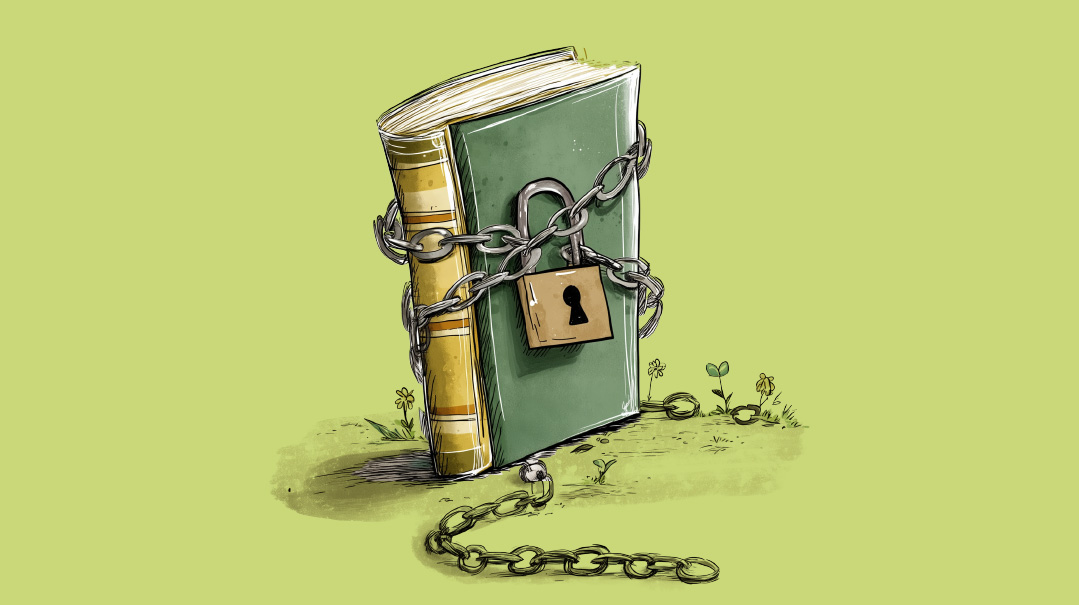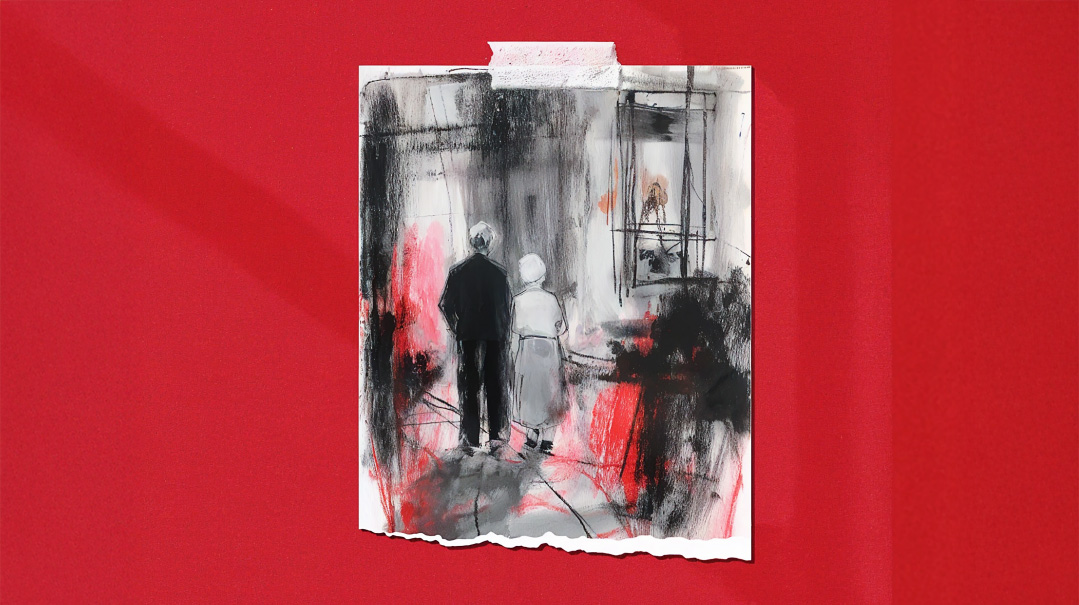Family First Inbox: Issue 853

“I know too many ‘yeshivish’ young men who can’t get a date because they aren’t learning full time”

The Elephant Wears a Black Hat [Inbox / Issue 851]
This letter has been in me for a long, long time, and I thank the letter writer who responded to the article “Soft Landings” — about helping our post-seminary daughters adjust back to life in America — for giving me the opportunity to air my thoughts.
I couldn’t agree more with the letter writer’s sentiments that seminary “should give a girl ambitions in ruchniyus that will carry her forward regardless of whether her husband finds his life’s calling inside the beis medrash.”
However, my experience has been vastly different from her conclusion that “Many of our seminaries are succeeding in this mandate,” and the fact that the responses to the question posed in the “Soft Landing” article focused so much on supporting our daughters’ decision to marry a long-term learner indicates that I’m not alone.
I know too many “yeshivish” young men who can’t get a date because they aren’t learning full time. When it came to shidduchim, my friends whose sons were learning full time were deluged with résumés. My son has chosen a different path — one that still revolves around Torah but is not strictly “learning full time.” He is “yeshivish” and quite brilliant. Still, we receive résumés in barely a trickle. But what can I say? My own daughters wouldn’t agree to date a boy with my son’s profile. A friend recently told me of her son who is in his late twenties. For seven years, he learned full time, and the résumés poured in. After seven years, he started to work — part time! — and the flow stopped as suddenly as Kri’as Yam Suf. “But,” she pointed out, “he’s the same person!”
There is much, much more to say. There is, for example, the fact that in our world a girl can be anything from musician to therapist to nurse to accountant to paralegal to court stenographer to SEIT and be classified an “amazing” girl, while boys must be doing one and one thing only — learning. We pay lip service to the fact that everyone is different and has different talents and callings, but our societal norms belie it.
So here we are. The elephant in the room wears a black hat. Young men can’t get dates. Single women get older and older because they refuse (are embarrassed?) to date a boy who isn’t learning full time. Bais Yaakov principals can’t find teachers because teaching is not “lucrative” enough to support a family. (I thought this had to be made up, until it happened to my daughters.) Young girls consider themselves failures when their husbands go to work. There’s a growing need for mentors for boys, but few to fill it because it “interferes with their learning."
Can we admit that things need to change?
Name withheld lest I be pegged an apikorus and ruin my children’s chances for shidduchim
Look At Our Imahos [Know This / Issue 851]
Re secondary infertility, it helps to remember that three out of four of our Imahos were blessed with one or two children. Don’t compare yourself to the Baker’s Dozen. I’m a mother of two children and grandmother of 12.
May you be blessed.
Savta Simcha
HG Sans Growth [In the Cocoon of Challenge / Issue 849]
Thank you for sharing Rebbetzin Ruthie Halberstadt’s perspective on the spiritual side of HG. As a husband who has experienced the horror of HG at my wife’s side four times, the most recent having ended just three weeks ago, I wanted to add a thought to the discussion.
First, I appreciate Rebbetzin Halberstadt’s approach toward HG, and believe that it is truly an ideal way in which to engage with this nisayon, for anyone who can achieve it.
With that said, and after much discussion with my wife and a rosh yeshivah, I would like to present another aspect to the spiritual side of yissurim, particularly HG.
Growth is a very important and essential part of our lives as Torah Jews, but it’s not the only part. Our tafkid in This World is to fulfill the Torah and mitzvos, as they are the way to fulfill ratzon Hashem on a cosmic level; each and every mitzvah brings kedushah and affects our world, and other worlds, in ways we cannot begin to fathom.
Chazal teach us (Avos d’Rabbi Nosson 3:6) that fulfilling one mitzvah while suffering is greater than doing the same mitzvah 100 times sans suffering. This is one of the main ways that yissurim atone for our sins; all the mitzvos we do while suffering are so inconceivably great, they correct the many times we fall short.
Whether or not a woman felt she was able to grow through HG (which isn’t always possible due to the nature of this horrendous disease), it’s important to note that she has spent nine months fulfilling her part of one of the greatest mitzvos in the Torah — the commandment of pru u’rvu, which is definitively more important than most other mitzvos. Regardless of growth achieved — or not — the cosmic effect at every moment of these endless months of severe suffering, while engaged in a mitzvah of such magnitude, is incomprehensible. (Whether or not there was a live baby at the end of it.)
Not only that, but each additional mitzvah done while experiencing such extreme suffering is exceedingly powerful. Every lighting of the Shabbos candles, managing to smile at a family member, washing one’s hands, and so forth, accomplishes more than it ever will when you are well. This is immensely valuable on a personal level, and for Klal Yisrael as whole. And even if you couldn’t do a single mitzvah for the duration of your HG — your being involved, moment after moment, in the tremendous mitzvah of pru u’rvu while suffering is unfathomable (and as per Chazal’s statement above, can be compared to bringing 100 neshamos into the world).
The message I wanted my wife to understand is that regardless of “measurable growth” during or after HG, she has achieved ratzon Hashem in a rare and very powerful way.
Binyamin Edelstein
Kiryat Sefer, Israel
Calling Out Dovid? [Stand By / Issue 847]
Now that the dust has settled for the Stand By characters, and everyone is sighing in relief that Dassi escaped a dangerous union on time, can we consider another character who didn’t learn the lesson he might have in this story?
Dovid Guttmacher is sheepish at the end of the story, and is gently chided for his less-than-mature, somewhat impulsive plan to help derail the shidduch. However, he’s given lots of credit for being a good guy — so much, in fact, that it appears he will be rewarded by being found good enough for Chayala.
I’m disappointed. Do you know an Ari? You might. Ari-types are personable and have many fans. Dovid appears, however, to have the fuller picture of what Ari is all about. So how could a ben Torah just abandon Dassi to her fate, and do nothing more than his silly attempt to intervene?
Friends of Ari: you’ve known this person for a while. You know he or she will not make a good spouse. Please consider the imperative of “lo sa’amod al dam rei’echa,” not just its counterpart mitzvah of staying far away from lashon hara. People’s very lives are at stake. If the Ari (or the female version) in your life is dating, or looking for a job, or opening a day camp, call a qualified posek and find out what your obligations are. Can you/should you/must you step forward with information when you know a relationship is developing? These aren’t just matters of taste or what is within your comfort zone. There are crucial Torah principles involved here that must be properly evaluated — and acted upon.
Please don’t be content with the role of bystander. Please ask a sh’eilah, and do what you are counseled to do. The Dassis will owe their lives to you — and more importantly even than that, you’ll be doing the right thing.
Name Withheld
(Originally featured in Family First, Issue 853)
Oops! We could not locate your form.







